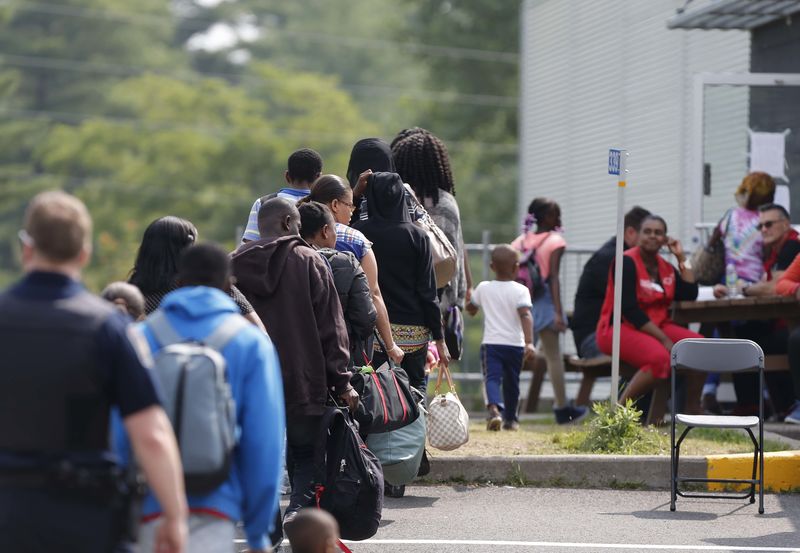TORONTO (Reuters) - As an influx of asylum seekers crossing from the United States strains Canada's immigration system, the country is ramping up its deportation of migrants, government data shows.
Deportations of Mexicans, who have flocked to Canada in growing numbers after a visa requirement was lifted in December, was already 66 percent higher in the first eight months of 2017 than the total from the previous year.
Deportations of Haitians, thousands of whom have crossed into Canada illegally in the hopes of avoiding deportation from the United States, have also soared. Canada has deported 474 so far this year, compared to 100 for all of 2016 when the government lifted its own ban on deportations to Haiti, in place since a devastating 2010 earthquake.
Overall, 5,529 people have been deported as of Tuesday, compared to 7,357 for all of 2016, the data shows.
Canada's Immigration and Refugee Board has called a rise in asylum-seekers through the U.S. border "unsustainable," and Prime Minister Justin Trudeau's government, fretting about another big surge in asylum claims, has been trying to warn people away.
At the same time, Canada said this week it will be granting border-crossing asylum seekers swifter access to healthcare. They will also be eligible for work permits sooner.
Refugee claimants are eligible for health coverage and work permits once their claims are processed, but that can take weeks or months.
More than 10,000 asylum seekers have walked across the U.S. border into Canada to file refugee claims so far this year, including 3,800 into Quebec in the first two weeks of August alone, authorities have said.

Canada is on track to record the most refugee claims in a decade.